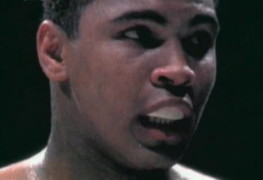50 years ago, 1966, the world was being dazzled, baffled and entertained by a heavyweight champion who fought like no heavyweight before him. Muhammad Ali, aged 24 and approaching his absolute peak, had won the crown two years earlier and he had made six retentions since shocking the greatly feared Sonny Liston.
Amazingly – truly amazingly when we look back today – the jury was still out, at least partially, on how good Ali was; or if he was even a “real” fighter. The sage old timers were appalled at the manner in which Ali held his hands dangerously low and worse, pulled back from punches instead of slipping them in the traditional manner. Also, Ali’s self-proclaimed prettiness bothered the old school: what would happen if the pretty boy had to take a shot, a real shot, to that beautiful face?
As it turned out, we never fully got an answer until the 1970s, when Ali, returning from his enforced exile, had lost enough of his blinding speed to allow his opponents to get home with a head shot. Back in 1966, however, Ali was almost impossible to hit cleanly – certainly with more than one punch at a time. It was fifty years ago next week, November 14, when the tough and hard-hitting Cleveland Williams experienced first-hand how lethal Ali’s uncanny blend of speed and power really was.
Williams, past his best and still carrying a bullet that was put into his stomach some months before, tried his best, but he was simply unable to hit the dancing, floating, stinging Ali. The fight, Ali’s eighth world title fight (fought over a period of just 33 months) was all over in less than three sizzling rounds. Ali was simply poetry in motion and it was later observed how he never again danced the way he did that night in Houston.
It was just four months after the brutal dismantling of “The Big Cat” that Ali, due to his anti-Vietnam war political beliefs, was prevented from boxing for almost four long years. March of 1967 was the very last time the world witnessed the peak Ali in a boxing ring. Just how great was Ali then, and would he have ever lost a fight had he not been stripped? We will never know but the logical thinking suggests that as good as Ali was in 1967 when aged 25, he would have become even better during the remainder of ’67 into 1968 and 1969 – a scary thought, along with a most tantalising one, for sure.
It was only when Ali returned in late 1970, his legs never quite the same as they had once been, that warrior Joe Frazier and the always tricky Ken Norton (with whom Ali always had real trouble; would this have been the case for the ’60s version of Ali?) were able to defeat him. But fifty years ago today, Ali was as close to a perfect heavyweight fighting machine as can be imagined. An Ali loss was practically unthinkable.
Ali was 28-0(22) when he was forced into exile. How different the world would have been had “The Greatest” retired with those numbers as his final record.
